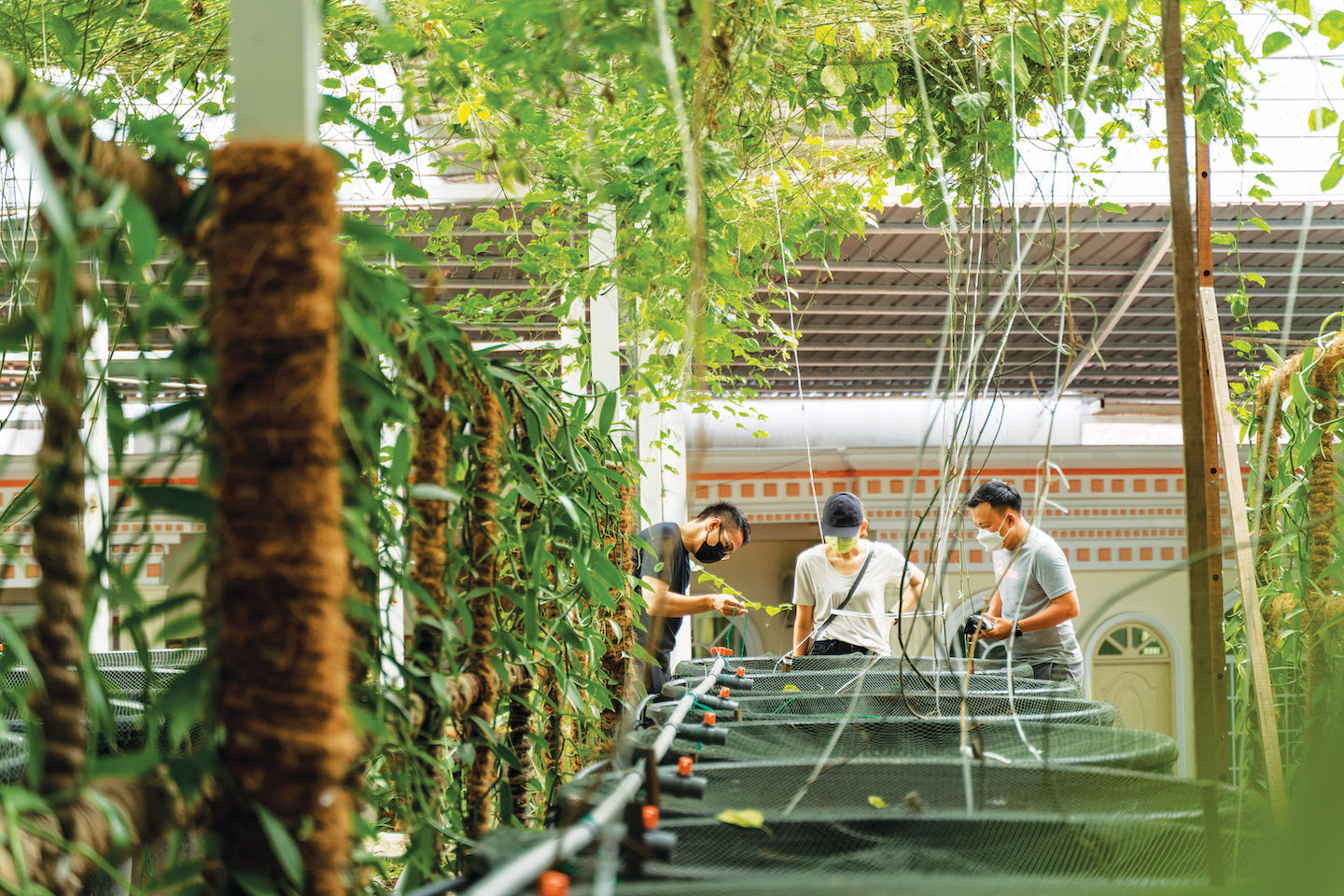
The indoor prawn farm, surrounded by plants grown around coconut husk barricades (All photos: Nutribah)
In Penampang, Sabah, eyes in the sky are helping local farmers grow crops on the ground. In much the same way self-driving cars can monitor their surroundings, solar-powered cellular cameras generate a detailed portrait of a field, from the wealth of plants to the health of the soil. These days, farming — a far cry from the wistful image of farmers toiling with their pitchforks — is less back-breaking but more mind-bending as technological advances are luring a new generation of millennials to feed the country. In the Land Below the Wind, digital evolution of agriculture is already a fact of life.
Spearheading the sustainable farming movement is agriculture and wellness company Nutribah, a portmanteau of the words “nutritious” and “bah” (the most common colloquial term used in Sabah that loosely means “okay” or “lah”). With a new food culture whetting interest in agriculture, three youngsters with no farming background left their cushy lifestyles to manage six organic farms with a total area of 405ha in Penampang, Lok Kawi, Kimanis, Keningau, Kalabakan and Tawau. Executive director Preston Sean Soh, who practised law and ran a business development consultancy in Kuala Lumpur, returned home last year to set up Nutribah with childhood friends Wallace Heng and Izzat Alexander.
directors_of_nutribah_wallace_-_preston_-_izzat_01.jpg
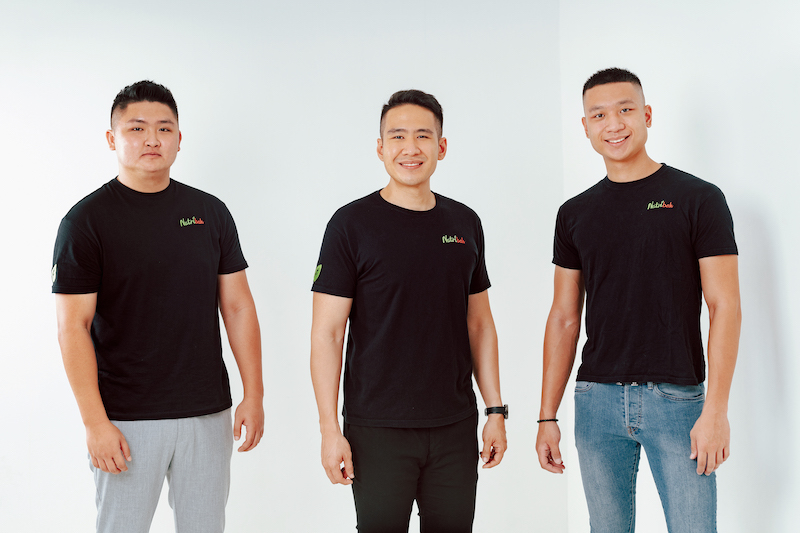
“We have always shared the passion for working together through thick and thin. Previously, we worked on digitisation, fintech and smart tourism before establishing Nutribah. Nonetheless, wanting to create value for Sabah and contribute to the Malaysian economy, we have pivoted to sustainable smart organic farming with mentorship from an experienced industrialist [who only wants to be known as] Mr John.”
Nutribah was established with the mission of addressing nutrient and food safety issues at the start of the pandemic. Farms that have been operating on conventional methods for more than a decade have all been consolidated to undergo a restructuring that also turns organic produce into final products for national export.
“Nutribah joined the organic supply market in July 2020. At the time, market prices of organic produce in Sabah hovered at RM18 per kg. A year later, Nutribah brought down the market price of organic supply by a whopping 38%. Currently, we are at the stage of downstreaming our organic products, namely sacha inchi oil [extracted by pressing the seeds and flesh of the fruit pracaxi] and kale powder, on a commercial scale via our smart factory, preparing for a nationwide launch by the first quarter of 2022,” says Soh.
In many parts of the world, agriculture is rooted in the grievances of beleaguered farmers, unsung heroes who wrestle with shrinking wages and labour shortages as the young leave for greener pastures. With that in mind, Nutribah set out to optimise the yield of farms beyond what humans alone have been able to accomplish, by investing in their key assets: farmers.
ptr05762_vanilla_sacha_inchi_coconut_husk_barricade.jpg.jpg
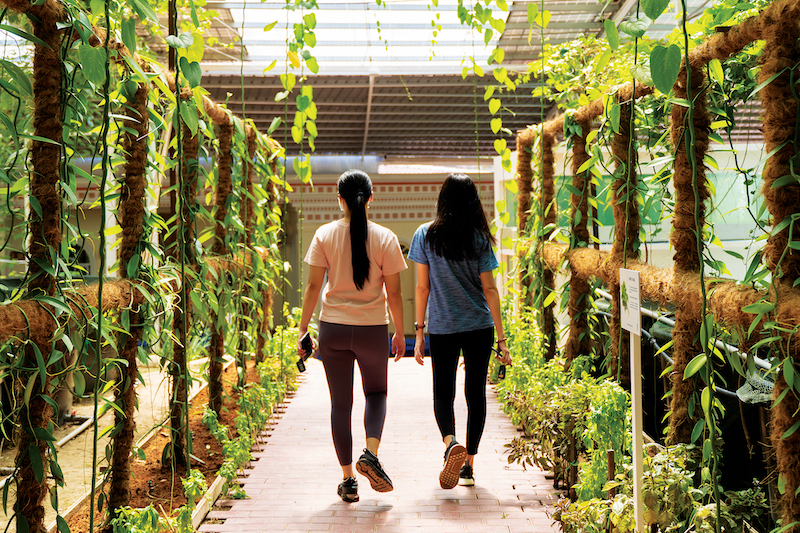
Through its Smart Organic Farming Blueprint, Nutribah is upskilling and reskilling more than 150 of its farmers by easing them into using digital tools such as robotic vehicles and unmanned aerial vehicles. Because the company’s entire ecosystem — from farm to management — is digitised, its workers have gained digital know-how in terms of monitoring and controlling the environment of their farms with precision. The company’s Internet of Things (IoT) systems not only track real-time data such as soil pH value readings, temperature and humidity remotely from a dashboard, they also regulate the amount of water and fertilisers distributed to the crops, as well as nip issues in the bud before it is too late.
“Both our manufacturing factory and greenhouse for our value crops are integrated with solar panels. Smart organic farming extends to the identification of viable economic crops and strategic planning of demand generation. Moreover, we utilise workforce, marketing and logistics management automation. This has enhanced the communication between our Sabah and Kuala Lumpur teams.”
A burgeoning locavore movement is also helping consumers to recognise how accustomed they have become to eating foods well outside of their native range. Respecting the bounty of our land means having to reacquaint ourselves with savouring what grows best locally. For example, tomatoes that were picked four weeks ago in Italy and shipped in a refrigerated truck will probably not taste as fresh as those harvested within a few days from a Malaysian farm. Essentially, buying locally — from trustworthy e-commerce channels such as Nutribah which eliminates the middleman — reduces food miles while rebuilding the relationship between farmers and consumers frayed by rigorous industrialisation.
The founders embrace this philosophy with fervour by supplying fresh produce such as passion fruit, basil, vanilla beans, microgreens, kale and paku pakis (a beloved ingredient among tourists) direct to consumers, grocery stores, supermarkets, restaurants and whole marts. The company is also nourishing one of Sabah’s most important aquaculture belts, growing at least 100 tonnes of farmed seafood a month such as the coveted empurau that is native to this part of Malaysia, grouper, tilapia and prawns in Tawau. These aquatic offerings are considered to yield higher nutritional value as they are fed with organic sacha inchi pellets derived from sacha inchi nuts that are rich in Omega 3, 6 and 9.
ptr05706_farm_to_plate_dining_experience_next_to_empurau_tilapia_vertical_aquaculture_1.jpg
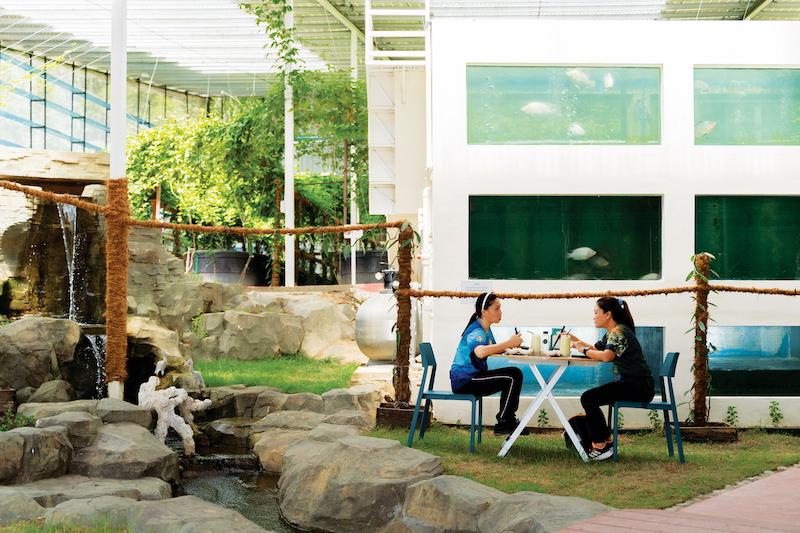
Nutribah has also begun catering for people looking for a connection to their food beyond a stroll through the farmers’ market. Attracting the sort of city dwellers who like their nature curated, an all-in-one farmhouse wellness resort is operating out of its headquarters in Penampang, complete with amenities such as an open-air sky gym, a private hiking trail, a co-working space and a restaurant that serves farm-to-plate hot pot. More than 10,000 visitors have patronised this bucolic haven since its inception in July last year, which is built on a self-sustaining model and closed-loop farming concept. In this floral-fringed sanctuary, sunlight from the solar panels and natural water from the mountains tend to the plants, while rejected crops are turned into organic feed and compost to enrich the land.
Using food as a prism for exploring Sabah’s biodiversity and indigenous culture, Nutribah entices one with fruits of the fields and sweeping panoramas of lush orchards outside their window in its other outposts too. There is an eco park in Kimanis, a tropical orchard in Lok Kawi, a longhouse farm stay in Kalabakan, as well as a spa in its aquaculture stronghold of Tawau. Variegating its portfolio by venturing into tourism is bearing fruit for Nutribah, which has positioned itself at the forefront of the travel boom into Sabah.
The Nutribah team envisions a future in which farmers are fleet managers, programming and deploying their tools from a central mission control and using the time saved on areas that need extra attention. An automated agribusiness could be the answer to a food supply chain that is growing less resilient by the day.
wellness_nutribah.jpeg
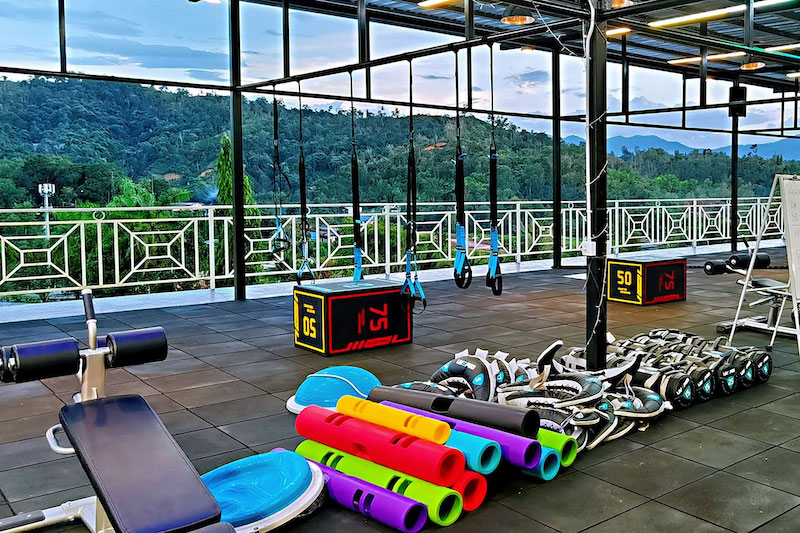
“Adopting smart organic farming practices will not only align with Malaysia’s IR 4.0 vision but also provide a solution to the growing population’s demand for food supply without causing massive deforestation, soil degradation and other harm to the environment. At the same time, it will lower the staggering RM55 billion food import bill and redefine a new sustainable economic industry for Malaysia.”
Farming is a game of biological lags: Today’s yield is the result of decisions made many months prior. The food industry has gazed upon nature and found it wanting — and got down to work to improve it. Employing technology is more than just reaping the benefits of AI during an industry disruption or designing a path to consumer convenience. As a matter of fact, our collective survival hinges on the premise of a smart, swift and safe food future.
This article first appeared on Oct 11, 2021 in The Edge Malaysia.


